My Take on Crypto and Gold: Why I Choose Gold
Disclaimer: Global Coin is a dealer of precious metal coins and does not provide investment, financial, or legal advice. Any information provided is for informational purposes only and should not be construed as investment advice, especially in relation to...
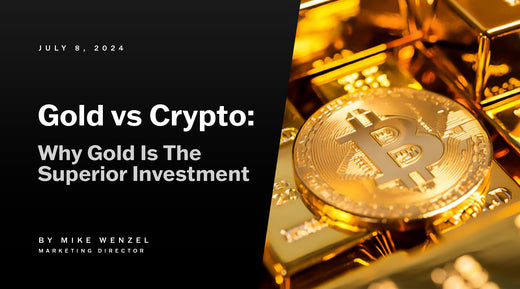

Disclaimer:
Global Coin is a dealer of precious metal coins and does not provide investment, financial, or legal advice. Any information provided is for informational purposes only and should not be construed as investment advice, especially in relation to finance . Investors should conduct their own due diligence and consult a qualified financial professional before making any investment decisions. Gold and rare coin investments involve risks, and past performance is not indicative of future results.
The investment world is always shifting—new tech, market swings, and economic trends keep things interesting. Gold, with its deep historical roots, has been my anchor through these changes, offering a stability that cryptocurrencies like Bitcoin struggle to match. Bitcoin’s blockchain tech is exciting, no doubt, but its wild ups and downs and risks make me cautious about crypto currencies in general . Let’s break down why I believe gold is the smarter choice for building and protecting wealth.
Introduction to Gold and Cryptocurrency
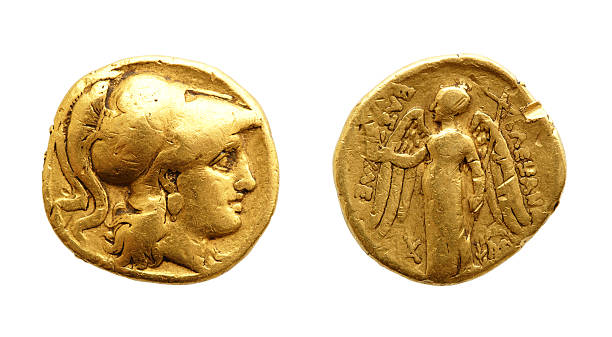
Gold has always been a cornerstone of wealth preservation, prized for its role as a reliable store of value and a safe haven during uncertain times. In recent years, the rise of digital currencies has introduced a new way for investors to diversify their portfolios. This intersection of tradition and innovation has led to the creation of gold backed cryptocurrencies, such as gold-backed tokens—digital assets that represent ownership of underlying physical gold. Products like the Perth Mint Gold Token and Tether Gold have made it possible for investors to buy and hold gold in a digital format, combining the security of precious metals with the convenience of digital currencies. These gold-backed cryptocurrencies offer a cost-effective way to invest in gold, making it easier for investors to access the value and stability of gold without the challenges of physical storage. As the world of finance evolves, these tokens are becoming an increasingly popular choice for those seeking both the safety of gold and the flexibility of digital assets.
The Enduring Power of Gold
Gold has been my go-to investment for years because it’s more than just a metal—it’s a piece of history. From ancient Egypt’s treasures to today’s central bank reserves, gold’s rarity and beauty have made it a trusted store of value for centuries. As one of the most important commodities in global markets, gold is valued for its stability compared to other commodities. It’s a physical asset I can rely on, unlike the digital promises of cryptocurrency or a coin .
Stability and Security
What I love most about gold is its consistency. While Bitcoin’s price can swing 20% in a day, gold stays steady, often rising when markets crash or inflation spikes. It’s my hedge against economic chaos—whether it’s a recession or currency devaluation, gold holds its ground. Its universal acceptance means I can trade it anywhere, from New York to Tokyo, with confidence. Plus, as a physical asset, it’s immune to the cyberattacks or tech glitches that can wipe out digital wealth.
A Tangible Asset I Can Trust
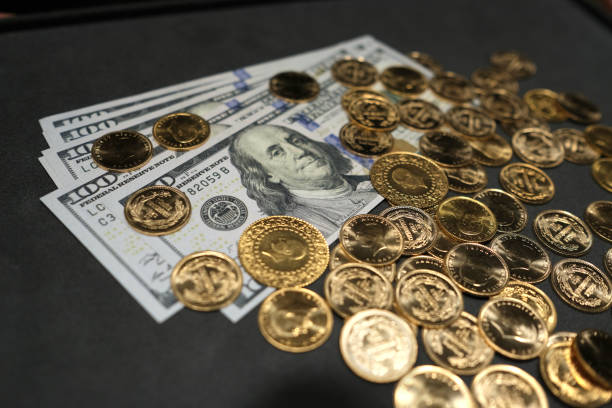
There’s something reassuring about holding a gold coin in my hand. It’s real, tangible, and mine—no servers or passwords needed. Unlike some digital assets where ownership can be more complex, owning physical gold provides direct ownership rights, giving me clear legal claim to the asset. According to the World Gold Council, this physicality gives gold an edge over digital assets like Bitcoin, especially during financial uncertainty. I can sell or trade my gold globally, often at a premium, because it’s so liquid, including options like pax gold . That kind of accessibility keeps my investments flexible and secure.
Central Banks Back Gold
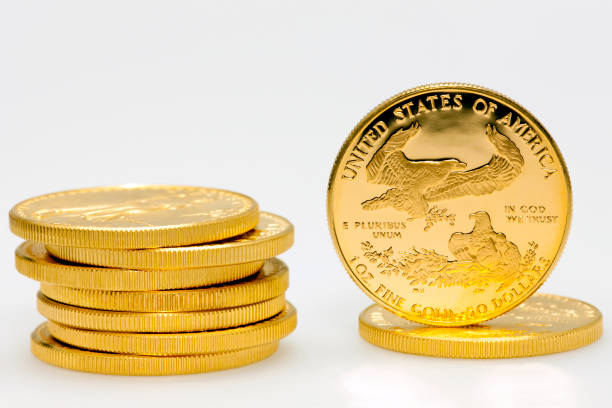
I take comfort in knowing central banks worldwide stockpile gold. They see it as I do—a safeguard against currency swings and economic instability. In recent years, banks in places like China and India have been buying up gold to diversify away from fiat currencies like the dollar. When they boost their reserves, it signals confidence in gold’s value, often pushing prices up. This institutional trust reinforces why I keep gold at the core of my portfolio.
The Rollercoaster of Cryptocurrency

Bitcoin and other cryptocurrencies have grabbed headlines, and I get the appeal—high returns and cutting-edge tech are hard to ignore. In the digital age, crypto currencies have emerged as decentralized digital assets that play a significant role in the evolving financial system. Bitcoins, as a form of digital currency designed for the digital age, are often compared to gold as a store of value. But as someone who values stability, I find their risks too steep.
High Risk, High Volatility
Bitcoin’s price swings are not for the faint of heart. Over the past year (September 2024 to September 2025), gold returned about 60%, steadily climbing from around $2,300 to over $3,600 per ounce as inflation and geopolitical tensions drove demand. Bitcoins, as a digital currency, have experienced significant volatility, with gains closer to 20%—rising from roughly $97,000 to $117,000—but with gut-wrenching drops along the way, sometimes losing 10-15% overnight. Those highs are tempting, especially with alternatives like tether gold but I’ve seen too many investors burned by sudden crashes. Gold’s smoother ride suits my goal of preserving wealth.
Regulatory Uncertainty
The rules around crypto are a mess. Governments are still figuring out how to regulate it, and a single policy change can tank prices. These regulatory changes can also create significant challenges for business operations in the cryptocurrency industry. I’ve read about countries cracking down on crypto exchanges, creating headaches for investors. Gold, on the other hand, has clear, established markets with centuries of precedent—no regulatory surprises there.
Security Risks
Crypto’s digital nature makes me nervous. Hacks, scams, and lost passwords have cost investors millions. I remember reading about exchange breaches where entire wallets vanished. Gold? It’s safe in my vault, untouched by cyber threats. The World Gold Council points out this resilience as a key reason gold outshines digital assets.
Digital Gold and Its Benefits
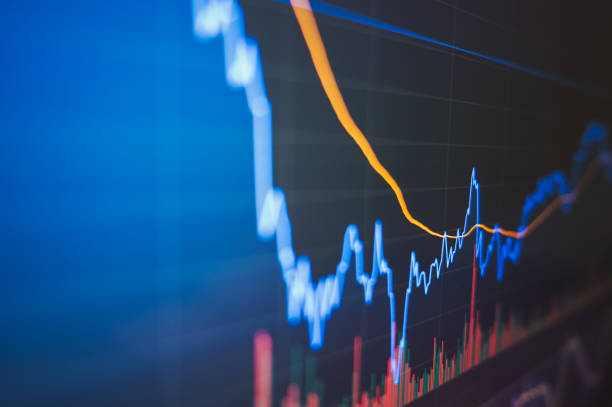
Digital gold, such as PAX Gold, is changing the way investors access and manage their gold holdings. Each PAX Gold token is backed by one fine troy ounce of physical gold, giving investors the confidence that their digital asset is supported by real, tangible value. For retail investors, digital gold offers a secure and convenient way to invest in gold without the need for physical storage or insurance. Blockchain technology ensures that transactions are transparent and secure, while also reducing transaction costs compared to traditional gold trading. Digital gold tokens can be easily bought, sold, and traded on various exchanges, making it simple for investors to adjust their portfolios or hedge against inflation. This accessibility and flexibility have made digital gold an attractive option for those looking to diversify their investments and protect their wealth in a rapidly changing market.
The Role of Monetary Policy
Central banks are key players in the global financial system, and their monetary policies have a significant impact on the value of both gold and cryptocurrencies. When central banks expand the supply of fiat currencies, it can lead to inflation and diminish the purchasing power of those currencies. In such environments, gold often becomes more appealing as a hedge against inflation and a store of value. On the other hand, digital currencies like Bitcoin are designed with a fixed total supply, making them attractive to investors who want to protect their assets from the effects of inflation and unpredictable monetary policy. The relationship between monetary policy, fiat currencies, and digital currencies is complex, and understanding this interplay is essential for investors looking to make informed decisions. Both gold and cryptocurrencies offer unique advantages as hedges against inflation, but their roles in the financial system are shaped by the actions of central banks and the broader economic landscape.
Gold vs. the Stock Market
I’ve noticed gold often shines when stocks stumble. During market crashes—like 2008 or the COVID-19 panic in 2020—gold prices surged as investors like me sought safety. It’s not just a defensive play; it’s a smart one. Gold’s low correlation with stocks means it balances my portfolio, reducing risk without the need for pricey advisors. Both gold and stocks are financial instruments, but gold's unique properties set it apart from other financial instruments in a diversified portfolio. Unlike stocks, it doesn’t pay dividends, but it gives me control and stability I can’t get elsewhere.
Buying and Storing Gold
There are more ways than ever for investors to buy gold, whether it’s in the form of physical gold, gold-backed tokens, or digital gold. When considering buying gold, it’s important to weigh the costs and logistics of storage, security, and insurance. Digital gold tokens, such as those provided by Paxos, offer a secure and cost-effective way to invest in gold, leveraging blockchain technology to simplify ownership and transfer. Investors can store their digital gold tokens in a cryptocurrency wallet or on an exchange, making it easy to trade or transfer their holdings at any time. Additionally, the ability to buy gold with both fiat currencies and other cryptocurrencies like Bitcoin opens up gold investing to a wider audience. This flexibility and accessibility make digital gold an appealing choice for those looking to diversify their portfolios without the traditional barriers of physical gold ownership.
Why Gold Wins for Me

A Proven Track Record
Gold’s been my rock for years because it’s weathered every economic storm—wars, recessions, you name it. The World Gold Council notes gold’s outperformed most assets during crises, and its limited supply protects it from monetary meddling. Bitcoin’s only been around since 2009, and while it’s had big runs, its speculative nature doesn’t match gold’s proven reliability.
Low Correlation with Other Assets
Gold’s price moves independently of stocks and bonds, which I love for diversification. When my equity investments dip, gold often holds or grows, cushioning the blow. This makes it a cornerstone of my risk management strategy.
Inflation Hedge
With inflation eating away at cash, gold’s been my shield. As fiat currencies lose value, gold tends to rise, preserving my purchasing power. Central banks agree, holding gold to back their economies. It’s why I see it as essential for long-term wealth.
The World Gold Council’s Role
I lean on the World Gold Council for insights—they’re my go-to for understanding gold’s market dynamics. Their research shows gold’s strength as a wealth preserver and inflation hedge, backed by data and global trends. Their reports often include estimated figures and projections about gold demand, supply, and market trends. They work with banks, governments, and miners to keep the gold market transparent and reliable, which gives me confidence as an investor. Their reports and tools help me make informed decisions, especially when comparing gold to volatile assets like Bitcoin.
Gold vs. Bitcoin: Past Year and Future Outlook
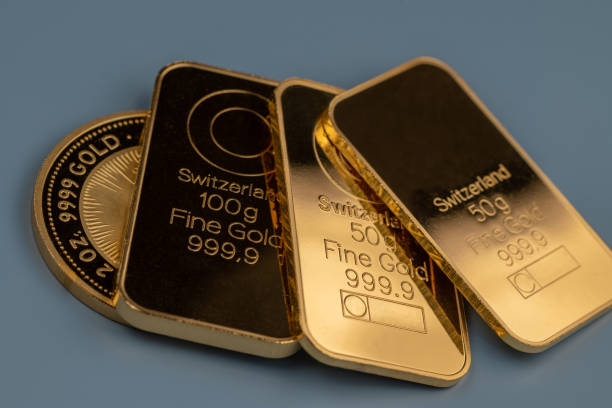
Looking at the past year, gold’s impressive 60% return—from about $2,300 per ounce in September 2024 to over $3,600 today—highlights its role as a safe haven amid persistent inflation, geopolitical unrest, and economic uncertainty. Drilling down to year-to-date in 2025, gold has surged from $2,600 at the start of the year to $3,600+, delivering around 38% gains with remarkable steadiness. Bitcoin started 2025 at $100,000 and now sits at $117,000, a solid but more modest 17% return, punctuated by sharp drops and unpredictable spikes. For example, Bitcoin briefly dipped below $100,000 during regulatory jitters earlier this year, while gold climbed methodically from $2,600 to its current highs. An example of how digital gold works: a user can purchase a gold-backed stablecoin, such as PAX Gold, which represents ownership of physical gold and can be redeemed for the underlying asset, with most transactions settling instantly or within the same business day.
Both Bitcoin and gold can be used as payment methods in certain contexts, with crypto currencies like Bitcoin increasingly accepted for payment and money transfer, offering low-cost, cross-border transactions. Cryptocurrencies also have many applications beyond simple transactions; for instance, platforms like Ethereum enable decentralized finance (DeFi) and NFTs. Asset backed tokens, such as gold-backed stablecoins, are digital assets secured by physical commodities like gold, and some are built on a public blockchain to enhance transparency and security. Verification of these tokens often relies on proof mechanisms, such as Proof of Provenance, to ensure authenticity.
PAX Gold is issued by Paxos Trust Company, a regulated entity overseen by the New York State Department of Financial Services. This regulatory oversight by the New York State Department ensures compliance and security for investors. Stablecoins, another category of digital assets, are often backed by fiat currency, providing stability and serving as a bridge to traditional finance.
What does this mean for the future? I see gold maintaining and even extending its edge. With ongoing economic challenges—rising global debt, escalating geopolitical tensions, and sticky inflation—demand for gold as a reliable store of value should remain robust, potentially pushing prices toward $4,000 or higher by year-end. Central banks continue to accumulate gold, further supporting its upward trajectory. Bitcoin’s path is murkier; its future depends on regulatory breakthroughs and broader adoption, but those are uncertain. If tighter regulations or another high-profile hack emerges, crypto could face setbacks. The past year’s performance, where gold outpaced Bitcoin in returns with far less drama, suggests that in times of true uncertainty, investors gravitate toward proven assets like gold. This trend could intensify, making gold the steadier, more dependable choice for long-term growth and preservation.
El Salvador, for example, became the first country to adopt Bitcoin as legal tender, illustrating national-level adoption of cryptocurrencies. The rise of digital assets is also impacting businesses, as companies adapt to new payment methods, regulatory challenges, and opportunities in the evolving financial ecosystem.
The Importance of Research
Whether you’re investing in physical gold, gold-backed tokens, or cryptocurrencies, thorough research and due diligence are essential. Investors should carefully evaluate the underlying physical gold that backs a token, the security measures in place, and the regulatory environment surrounding the asset. It’s also important to assess the reputation and reliability of market participants, including exchanges, wallets, and other investors. By staying informed and conducting proper research, investors can make smarter decisions and better manage their risks. Keeping up with developments in blockchain technology, changes in monetary policy, and shifts in market sentiment can help investors maximize returns and minimize potential pitfalls. In a rapidly evolving market, knowledge is your best defense against risk.
My Final Thoughts
As someone who’s navigated the investment world for years, I choose gold for its stability, history, and tangible security. Bitcoin’s allure is real, but its volatility and risks don’t fit my goal of building lasting wealth. At Global Coin, we’ve seen how gold can anchor a portfolio, offering peace of mind in a chaotic market. If you’re looking to diversify or protect your wealth, I’d love to share more about how gold can work for you. Gold’s not just an investment—it’s a legacy of stability I trust for my financial future.
Related Articles

Modern Numismatic Masterpieces: Why Stephen Pfeil’s New Book Is Redefining 20th and 21st Century ...
Discover More
Why Silver Supply Doesn’t Respond to Higher Prices Like Other Commodities
Why Silver Supply Doesn’t Respond to Higher Prices Like Other Commodities In a world obsessed wi...
Discover More
The Spot Price of Gold: What It Really Means and Why I Watch It Every Single Day
Why I Start Every Day With the Gold Price Every morning before I even open my inbox, I check one...
Discover More




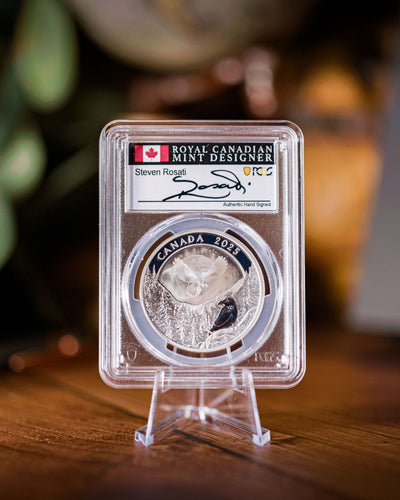



1 comment
Brilliantly written and deeply engaging! The comparisons between gold and cryptocurrencies were explained with such clarity. If you’re venturing into the crypto world, have a look at the best crypto coin to buy now. Looking forward to your next post!
Mr Mint
Leave a comment
This site is protected by hCaptcha and the hCaptcha Privacy Policy and Terms of Service apply.